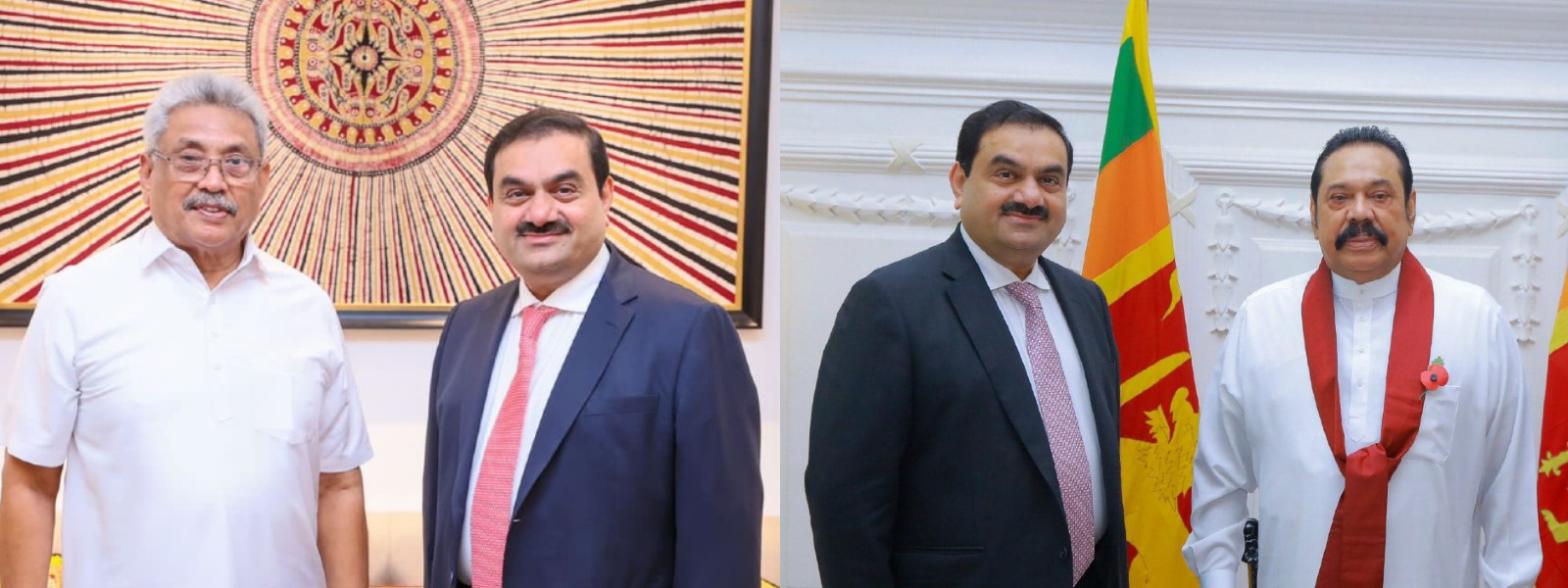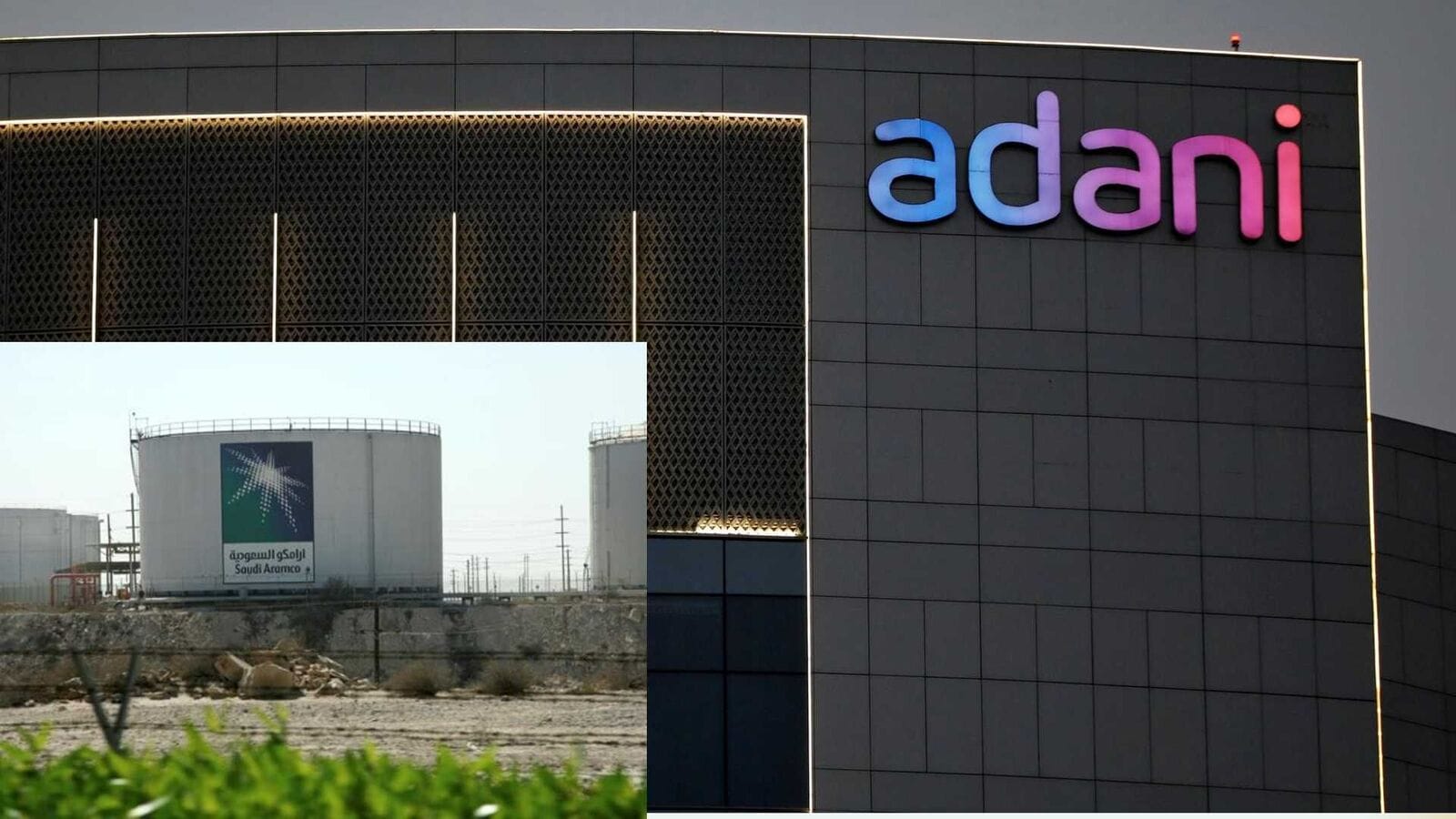Gautam Adani’s relations with Saudi and Lanka

Gautam Adani’s relations with Saudi and Lanka
Founder and chairman of the Adani Group, Gautam Adani, is an Indian industrialist and one of the world’s wealthiest individuals. Ahmedabad, Gujarat, India, is the company’s headquarters.
He is a first-generation entrepreneur whose main idea is to infuse “Growth with Goodness” through his nation-building vision. Due to an unexpected dip in shares at the Adani Group, he lost his title as Asia’s second-richest man on June 17, 2021.
In his nation-building ambitions, Mr Adani, a first-generation entrepreneur, is guided by the idea of merging “Growth with Goodness.” Each of the Group’s firms is committed to aiding India’s development of world-class infrastructure capabilities.
The Group has a long history of forming strategic alliances with global leaders that wish to be a part of India’s growth story. Long-term relationships have resulted from these foreign corporations’ global competence in their respective businesses, paired with Adani Group’s local execution and market capabilities. The list includes Wilmar Group, Total SA, and Elbit Systems, to name a few.
The Adani Foundation, Group’s Corporate Social Responsibility arm, is one of his key areas of interest. Every year, approximately 3.4 million people in 2315 villages throughout 18 Indian states benefit from the Foundation’s pan-India projects in education, sustainable livelihoods, healthcare and community infrastructure development.

Sri Lanka’s opposition claims that the Adani Group is sneaking into the country through the back door.
The Adani Group comprises seven publicly traded companies with a total market capitalization of over with operations in energy, ports and logistics, mining and resources, gas, defense and, airports and aerospace. In every business industry in India, the Group has developed leadership positions. “It is with grave sadness we see the Adani Group’s decision to enter Sri Lanka through the back door. We don’t like it when people try to avoid competition. It harms our damaged economy, exacerbates balance-of-payments problems, and adds to the anguish of our population,” said Ajith P. Perera, chief executive of Sri Lanka’s largest opposition party, the Samagi Jana Balawegaya (SJB or United People’s Force).
The announcement follows a previous deal between India’s Adani Group and Sri Lanka’s Northern Province to build two renewable energy projects in Mannar and Pooneryn. According to official sources, the Memorandum of Understanding (MoU), signed on March 11, 2022, has attracted attention due to its apparent secrecy.
According to a top officer with the government-owned company, Ceylon Electricity Board, Adani is considering investing in Sri Lanka’s energy and wind sectors (CEB). The Adani company recently signed a deal with Sri Lanka to build and operate the Western Container Terminal at Colombo Port.
The remarks came a day after Adani Group chairman Gautam Adani met with Sri Lankan President Gotabaya Rajapaksa and Prime Minister Mahinda Rajapaksa in Colombo, just weeks after his company signed a deal with the state-owned Sri Lanka Ports Authority (SLPA) to develop and operate the crucial Colombo Port’s Western Container Terminal (WCT).
“I had the honour of meeting President @GotabayaR and Prime Minister @PresRajapaksa. The Adani Group will look into new infrastructure collaborations in addition to constructing Colombo Port’s Western Container Terminal “Adani sent out a tweet.
“India’s strong links with Sri Lanka are anchored to centuries-old historical ties,” Adani wrote on Twitter, sharing photos of his two Sri Lankan meetings.
According to the Daily Mirror newspaper, the billionaire businessman arrived on the island on Sunday with a delegation of ten people aboard two chartered flights.
Based in Ahmedabad, India, the Adani Group recently signed an agreement with the Lankan government-owned Port Authority to build the Colombo Port’s West International Container Terminal. The USD 700 million Build-Operate-Transfer agreement, is the most significant foreign investment in the port industry.
The visit coincided with the Adani Group’s signing of a contract to run the Colombo Port’s WCT in September. Local port trade unions thwarted their attempt to take control of the Eastern Container Terminal (ECT). By introducing the WCT, the government dissolved the ETC tripartite agreement with India and Japan.
Sri Lanka’s cash-strapped economy will also benefit from the Adani investment.
Sri Lanka’s economy is on the verge of collapse due to past debts — primarily the repayment of sovereign bonds — and the devastating impact of Covid-19 on the island’s primary revenue generators — tourism and international remittances. Though the country has categorically rejected an IMF loan, concerns about the country’s capacity to service $1.5 billion in debt due next year remain.
The risk premium for default in Sri Lanka is the highest in Asia. The country’s FX reserves are around $3 billion, up from $2.8 billion in July due to a $787 million special drawing rights allocation from the International Monetary Fund. Even so, it’s only enough to pay six weeks’ worth of imports. Inflation is hovering at 6%, and food costs have increased by 11% since last year.

China’s ports in Sri Lanka, here’s what India said
The purchase is geopolitically significant because it is the first Indian port operator in Sri Lanka and the most influential foreign investment in its port industry. Even though Colombo Port supplied the Indian market essentially, no Indian investor had expressed interest in participating in Sri Lanka’s port industry. That is until the Chinese invaded the country.
Sri Lanka has now emerged as a critical battleground in India’s South Asian rivalry with China. The most recent example is port investments.
The CWICT, according to ADANI, will have a quay length of 1400 metres and an alongside depth of 20 metres, allowing it to dock ultra-large vessels. It is projected that 3.5 million containers would be processed.
Ports are increasingly being seen as strategic assets rather than just commercial ones. The investment comes a decade after China Merchant Ports (CM Ports) and Aitken Spence, a Sri Lankan conglomerate, signed a 35-year concession agreement with the Sri Lankan Ports Authority in 2011 to operate the southern terminal, known as the Colombo International Container Terminal (CICT), under a build-operate-transfer model.
The arrival of CM Ports was a watershed moment in Colombo Port’s history. CM Ports is one of the top 10 terminal operators globally, with a presence in over 40 ports across the world. The Colombo Port’s competitiveness was boosted by its global experience and efficiency. In 2012, Aitken Spence sold their investment in the southern terminal, leaving CM Ports with an 85% stake.
In the first half of 2018, the Colombo Port grew by ten, making it the fastest-growing sport. In 2019, it handled 7.2 million containers, with the CICT handling over 40% of them.
In addition, CM Ports acquired the Hambantota Port on the island’s southern shore in 2017 under a 99-year lease that sparked outrage.
Adani’s investment in the western terminal is seen as a game-changer amid increased Chinese influence in Sri Lanka’s port industry and erroneous perceptions about China’s debt-trap diplomacy. Beijing’s substantial investments in Sri Lanka’s ports had been a concern for New Delhi, which believed they had strategic implications. China’s involvement in the construction and operation of Hambantota Port caused particular worry, notwithstanding India’s rejection of the port’s construction in the first place.
Even though India and Sri Lanka have had tense relations, the new Adani agreement is considered commercially and strategically beneficial to all parties concerned.
Commercially, more than 70% of Colombo Port’s transhipment business is linked to the Indian market – much of it. According to available statistics, with Adani port terminals, having an Indian partner is a welcome development in forging new relationships in the Indian maritime and logistics sector. According to the firm, Adani Group also owns and operates Mundra, India’s fastest-growing sport. While the Mundra port has multiplied in recent years, it still trails behind Colombo due to India’s cabotage rules, allowing only Indian-registered ships to go on local routes. Colombo would see increased competition as Indian states eventually lift these limitations.

Sri Lanka benefits from its strategic location and one of the world’s busiest shipping routes when partnering with foreign enterprises, port operators, and logistics organizations. v. In 2014, a Chinese submarine moored at CICT, raising security worries among Indian onlookers. While the new agreement will not ban Chinese activities, it will alleviate their concerns. It also supports India’s investment policy in strategically critical commercial ports, as it has done in Iran’s Chabahar and Oman’s Sohar.
India also proved its ability to continue to exert influence over its neighbour to achieve its goals. Ports are increasingly being seen as strategic assets rather than just commercial ones. Countries can spread their power, influence, and forward defence capabilities without owning and spending a fortune on an overseas military post if they have control over and easy access to vital ports. Adani’s investment in Sri Lanka has given India a strategic advantage. Even though India and Sri Lanka have had tense relations, the new Adani agreement is considered commercially and strategically beneficial to all parties concerned.
Commercially, more than 70% of Colombo Port’s transhipment business is linked to the Indian market – much of it, according to available statistics, with Adani port terminals – so having an Indian partner is a welcome development in terms of forging new relationships in the Indian maritime and logistics sector. According to the firm, Adani Group also owns and operates Mundra, India’s fastest-growing sport. While the Mundra port has increased in recent years, it still trails behind Colombo due to India’s cabotage rules, allowing only Indian-registered ships to go on local routes. Colombo would see increased competition as Indian states eventually lift these limitations.
Sri Lanka benefits from its strategic location and one of the world’s busiest shipping routes when partnering with foreign enterprises, port operators, and logistics organizations. India benefits from the Adani investment because it is adjacent to China’s activities at Colombo Port, allowing it to keep a close eye on the situation. In 2014, a Chinese submarine moored at CICT, raising security worries among Indian onlookers. While the new agreement will not ban Chinese activities, it will alleviate their concerns. It also supports India’s investment policy in strategically critical commercial ports, as it has done in Iran’s Chabahar and Oman’s Sohar.
India also proved its ability to continue to exert influence over its neighbour to achieve its goals. Ports are increasingly being seen as strategic assets rather than just commercial ones. Countries can spread their power, influence, and forward defence capabilities without owning and spending a fortune on an overseas military post if they have control over and easy access to vital ports. Adani’s investment in Sri Lanka has given India a strategic advantage.
The Adani Group is looking into forming a partnership with Saudi Aramco.

According to reports, the Adani company is looking into partnering with Saudi Aramco and the oil kingdom’s Public Investment Fund. According to Bloomberg, Gautam Adani prefers to invest using his shares rather than cash, giving potential partners a stake in his company. Before the world’s major central banks turn from ultra-loose monetary policy to inflation-fighting hawkishness, it makes sense for companies like Adani to establish share-swapping partnerships. Not just this agreement with Saudi companies, but the Indian billionaire is on the lookout for a number more purchases.
According to another source, Adani may also give the PIF, Saudi Arabia’s sovereign wealth fund, the opportunity to invest in Indian infrastructure. According to the sources, the talks are still in the early stages, and Adani hasn’t decided on the form any future partnership may take.
A transaction might help Aramco strengthen ties with one of the world’s most rapidly rising energy customers. The Saudi oil company spent more than two years negotiating a potential $15 billion investment in Indian billionaire Mukesh Ambani’s Reliance Industries Ltd.’s oil-to-chemicals subsidiary, only to have the talks cancelled in November. At the time, Aramco stated that it would continue to consider investing in India.
Adani Group did not respond to a request for comment right away. Aramco and PIF spokespeople declined to comment.
Strategic Partnerships
PIF received a 4% share from the Saudi government last month. Based on Aramco’s closing price in Riyadh on Thursday, the stakes are worth around $89 billion. As it strives to collect funds for its lofty investment ambitions, PIF has lately begun discussions about how to monetize that stake.
Gautam Adani is Asia’s second-richest individual, according to the Bloomberg Billionaires Index, with $90.5 billion. His conglomerate includes ports, power, renewable energy, airports, coal trade, and data centres.
Adani struck a deal with Posco of South Korea in January to explore business potential in India. The agreement calls for constructing a green steel factory in Gujarat, which might cost up to $5 billion over the next few years.
For some years, Saudi Arabia has sought to strengthen ties with India. During a visit to see Prime Minister Narendra Modi in 2019, Saudi Crown Prince Mohammed Bin Salman claimed that the country may spend $100 billion in India.
Since then, the PIF has bought holdings in Reliance’s retail company, wireless arm, and fibre-optic network assets in India. Yasir Al-Rumayyan, chairman of Aramco and governor of the PIF, has been added to the Indian conglomerate’s directors.






